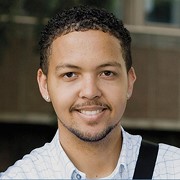A
new report prepared for the
Success Boston College Completion Initiative by the research firm Abt Associates shows that graduates of the Boston Public Schools who are receiving coaching through the initiative have a significant advantage over other students. Success Boston coached students are 11 percent more likely than non-coached peers to persist into the second year of college and 21 percent more likely to persist into the third year. Coached students also have a college grade point average that is 8 percent higher than non-coached students, spend 10 percent more time in good academic standing and are 9 percent more likely to navigate their way through the financial aid process. According to Abt’s Tamara Linkow, who presented the report at an Understanding Boston forum
on March 23, the effects of coaching are “positive and large.” She characterized the third-year persistence results as “overwhelmingly large.”
“Success Boston coaches are literally changing lives,” said J. Keith Motley, Chancellor of UMass Boston, who pointed out that higher college graduation rates increase access to employment.
“There are real shortages of talented, degree-holding workers in many business sectors that are crucial to our economic health,” agreed Kenneth C. Montgomery, President and COO of Federal Reserve Bank of Boston. “This report is yet another encouraging sign that when our city comes together to support our graduates and help them advance to college, we all win.”
Elizabeth Pauley, the Boston Foundation’s Senior Director of Education, moderated the discussion, which included Greykia Harris, a Success Boston graduate from Northeastern, who said that her coach “instilled confidence and made me believe in my intelligence.” Gabrielle Guity, a Success Boston coach, described what coaches offer students as the “scaffolding that allows them to come into their own.” Valerie Roberson, President of Roxbury Community College, described Success Boston as “a village that is helping students do it together,” while Rahn Dorsey, Boston’s Chief of Education, said, “This report tells us that we are doing the right thing, but the ultimate goal is to get all our children through college.”
Success Boston is a partnership of the Boston Foundation, the City of Boston, the Boston Public Schools (BPS), 37 area institutions of higher education, led by University of Massachusetts Boston and Bunker Hill Community College, and local nonprofit partners, including the Boston Private Industry Council and uAspire, which provides financial advice to students.
By offering academic programming and college advising activities in high school, providing one-on-one coaching supports to students as they move into and through the first two years of college, and closely collaborating with local higher education institutions, Success Boston aims to help BPS graduates earn degrees and enter the local workforce successfully. The Boston Foundation funds and supports the nonprofit organizations that provide the one-on-one coaching for students. In 2014, the Boston Foundation received a grant from the Corporation for National and Community Service to expand its work. The $6 million Social Innovation Fund award gives the Foundation the resources necessary to expand Success Boston’s coaching model from serving 300 to 1,000 students from each of the BPS classes of 2015, 2016 and 2017.
Success Boston coaches support students throughout the academic year, offering guidance to help them navigate through college to graduation. Coaches counsel students on life skills, study skills and academic achievement as well as jobs and careers.
“There is a tremendous amount of opportunity, especially in our region, for those who are prepared to take advantage of it and an unacceptable lack of opportunity for everyone else,” said Paul S. Grogan, President and CEO of the Boston Foundation. “In addition to the importance of offering equal opportunity to all of our city’s young people, graduates of Boston’s public schools represent a valuable resource that we cannot afford to waste.”









